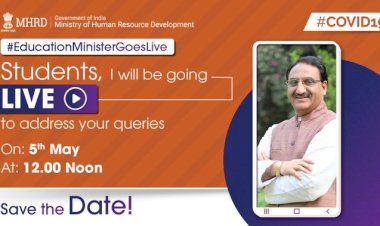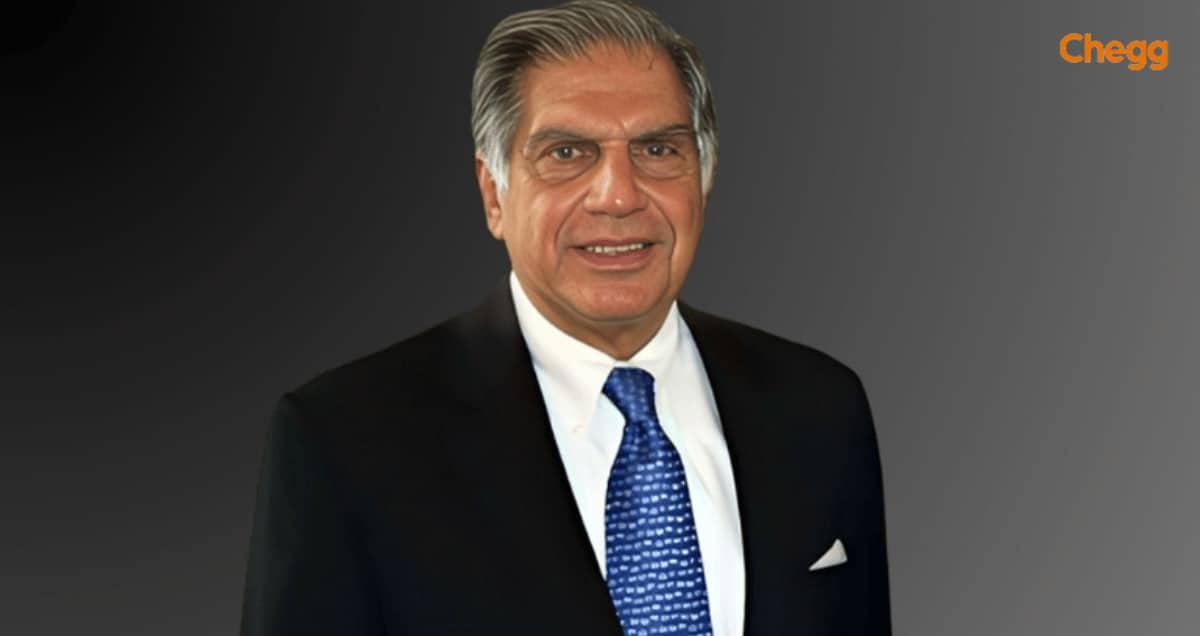How to Become Medical Officer: Career Advice, Educational Requirements, Jobs, Scope & Salary
The country’s doctor-to-population ratio is 1:834, assuming the availability of 5.65 lakh AYUSH doctors and 80% of certified allopathic doctors. Medical officers (MOs) are healthcare workers. They carry out clinical jobs and manage the hospital. Plus, they also act as a link between the hospital staff and the top-tier officers. To become a medical officer, […] The post How to Become Medical Officer: Career Advice, Educational Requirements, Jobs, Scope & Salary appeared first on Chegg India.

The country’s doctor-to-population ratio is 1:834, assuming the availability of 5.65 lakh AYUSH doctors and 80% of certified allopathic doctors.
Medical officers (MOs) are healthcare workers. They carry out clinical jobs and manage the hospital. Plus, they also act as a link between the hospital staff and the top-tier officers.
To become a medical officer, you need to clear the state or UPSC exam along with an MBBS and a few years of work experience. Over the years, there’s been an increase in demand for MOs, mainly after COVID-19.
The government has acted to improve the country’s access to doctors. The number of UG seats has grown by 75% from 51,348 before 2014 to 89875 seats as of now. The number of PG seats has increased by 93% from 31,185 seats before 2014 to 60202 seats.
A medical officer has its challenges and duties. As a reputed job, the MO is appointed at the district level first. They help with the daily functioning of the hospital.
In this article, we’ll discuss the eligibility and education required for becoming an MO and a step-by-step plan on how to become a medical officer in India.
Is a Medical Officer the Same as a Doctor?
Here is what separates a medical officer from a doctor:
- Medical officers have various duties. These include assessing the health of the patient and helping healthcare teams choose the best treatment. Doctors, on the other hand, have more deep knowledge of medicine and treating a patient.
- Medical officers need at least a Bachelor’s degree to work. They can also apply for a master’s degree. Plus, they most commonly work in healthcare centers. They carry out the proper treatment of patients. They also advise staff like nurses and junior doctors. Whereas, doctors need to complete a UG course, followed by a 1-year internship. They can then apply at the PG level.
- Both Medical officers and doctors are employed by the government. Doctors work in several places – including hospitals, private practice, and even medical centers. They also travel to some locations as part of their job.
- Both doctors and medical officers must have good speaking skills. They also need to work under pressure. Medical officers should have both the medical and business side. Doctors, on the other hand, focus on their core skills.
Types Of Medical Officers
There are many types of medical officers. Their roles and duties can vary depending on the country, or organization they work.
Here’s a quick brief of some types of MOs:
Public Health Medical Officer
A medical officer, who works in the public health sector, watches, and manages policies.
Medical Officer of Health
Public health officer that oversees public health policies and programs at the district, state, or PAN level. They work to ensure the public is protected from health hazards and outbreaks.
Medical Research Officer
An MO working in a research field, conducting trials, and managing data. They bring in new treatments for many medical conditions.
Medical Review Officer
An MO works in the field of medicine and notices and makes out medical data related to workplace drug testing and substance abuse programs.
Medical Officer in the Armed Forces
A medical officer who works in the military, providing healthcare services to soldiers and their families. They also provide support during combat actions.
Medical Officer in a Hospital
A medical officer working in a hospital, providing medical care to patients. They also teach junior doctors and manage the clinical process.
These are just a few types of medical officers. The roles and duties of a medical officer can vary greatly depending on their study and the place or industry they’re working at.
Steps on How to Become Medical Officer in India
Becoming a medical officer needs a good amount of studies and training. One also needs a license and certificate. Here are the steps required for becoming a medical officer in detail:
Educational Requirements
Following is the CMO education in detail :
To become a medical officer in India, you must first complete your 10+2 with science as the main subject. They must then appear for and clear the National Eligibility cum Entrance Test (NEET). In this way, they can gain entry to a Bachelor of Medicine and Bachelor of Surgery (MBBS) program, a five-and-a-half-year course.
Specialization in a Field
After completing MBBS, you can choose a specialized field of medicine. You can pursue a PG degree, such as a Doctor of Medicine (MD) or Master of Surgery (MS). This process can take between three to six years. It depends on the field of study.
Licensure and Certification
To practice medicine, you must obtain a license from the Medical Council of India (MCI) or your state medical council. They must also complete a must 1-year internship program in a hospital or clinic. Then, they can apply for their license. Plus, they can also choose to obtain certificates from medical entities to enhance their skills and knowledge.
Thus, becoming a medical officer in India needs high education and training but can lead to a rewarding career in the healthcare field.
Courses to Pursue to Become a Medical Officer
Here are a few courses you can pursue to become a medical officer:
| Measures | BAMS (Bachelor of Ayurvedic Medicine and Surgery). | BHMS (Bachelor in Homeopathic Medicine and Surgery). | MBBS (Bachelor of Medicine, Bachelor of Surgery). |
| Course Time. | 5.5 years. | 5.5 years. | 5 years with 6 months of training. |
| Eligibility. | You must have completed class 12th in Physics, Chemistry, and Biology.You must have cleared the NEET exam. | You must have completed class 12th in PCB.You must have cleared the NEET entrance exam. | You must have completed class 12th in Physics, Chemistry, and Biology. You must have cleared the NEET exam. |
| Entrance Exams. | NEET. | NEET. KEAM. PUCET. IPU CET. | NEET. |
| Top Colleges. | Banaras Hindu University.IMS Varanasi.KLE University.Bharati Vidyapeeth Deemed University. | National Institute of Homeopathy.Dr D Y Patil Homeopathic Medical College.Anuradha Homeopathic medical college. | AIIMS.National Institute of Medical Health & Neuro Sciences.PGIMER.King George’s Medical University. |
| Course fees (average). | INR 20,000 – 3,00,000. | INR 12,000 – 2,00,000. | INR 5000 – 10,00,000. |
Also Read: BDS Course: Your Path to Become a Dentist
Average Salary and Jobs of a Medical Officer
The average salary for a CMO in a hospital in India depends on multiple factors. These include your experience, place of work, and the entity you work for.
That said, you get paid in the range of Rs. 8 lakhs to Rs. 11 lakhs per annum.
Given below is a detailed list of the chief medical officer’s salary in India across experience levels:
| Levels | Approx. Salary (in Rs./annum). |
| Freshers | Rs. 6.5 lakhs per annum. |
| Mid-level | Rs. 8.5 lakhs per annum. |
| Experienced/Senior-Level | Rs. 11 lakhs per annum. |

Must-have Skills to Become a Medical Officer
Becoming a medical officer needs good academic knowledge with practical and various social skills.
Here are some must-have skills to become a medical officer:
Medical Knowledge
A medical officer must have a strong knowledge of medical sciences, including anatomy, physiology, pharmacology, and pathology.
Clinical Skills
A medical officer must possess clinical skills to detect and treat patients, assess diagnostic tests, prescribe medicines, and perform medical actions.
Communication Skills
Good communication is a must for a medical officer to explain medical conditions, treatments, and processes to patients and their families.
Attention to Detail
A medical officer must notice the finer details to make correct diagnoses and prescribe the right treatments.
Interpersonal Skills
Medical officers work in a team. You must have very good social skills to work in a group with other MOs and staff.
Empathy
Compassion and empathy are must traits for medical officers. Because they frequently work with patients who are going through a difficult moment.
Leadership and Teamwork
Medical officers often work as part of a healthcare team. As a result, the ability to lead and collaborate effectively with others is essential.
Cardiology
Field in the diagnosis and treatment of heart diseases.
Dermatology
Focuses on the diagnosis and treatment of skin diseases.
Emergency Medicine
Deals with medical urgency, including trauma, acute illness, and injury.
Endocrinology
Field in the diagnosis and treatment of hormonal disorders, including diabetes and thyroid diseases.
Gastroenterology
Focuses on the diagnosis and treatment of digestive system disorders, including ulcers, gastritis, and liver diseases.
Hematology/ Oncology
Focuses on the diagnosis and treatment of blood disorders and cancers.
Nephrology
Focuses on the diagnosis and treatment of kidney diseases.
Neurology
Focuses on the diagnosis and treatment of nervous system disorders, including brain and spinal cord diseases.
Obstetrics and Gynecology
Focuses on women’s reproductive health, including pregnancy and childbirth.
These are just a few examples of different specializations for medical officers.They can also specialise in fields including pulmonology, rheumatology, and urology.
Key Takeaways
A medical officer is a healthcare professional with a medical degree. They are often responsible for overseeing public health policies and programs at the district, state, or national level.
In order to become a medical officer in India, one must first complete a higher secondary education with science as a major subject. Then, in order to be admitted to the Bachelor of Medicine and Bachelor of Surgery (MBBS) curriculum, the National Eligibility Cumulative Entrance Test (NEET) must be passed.
After completing their MBBS, candidates can choose to specialize in a particular field of medicine. They can pursue a postgraduate degree such as a Doctor of Medicine (MD) or Master of Surgery (MS).
To practice medicine in India, candidates must obtain a license from the Medical Council of India (MCI) or the respective state medical council. Then one must complete a mandatory one-year internship program in a hospital or clinic.
Want to earn while you learn and prepare for your exams? Use your skills and academic knowledge to make money by solving the queries of students worldwide. Grab the opportunity to become a Chegg Q&A expert today! Sign up here now!
Frequently Asked Questions
The most common and preferred degree for a Medical Officer is MBBS (Bachelor of Medicine and Bachelor of Surgery). It is a 5-year course (at the Undergraduate level). It is often cited as one of the primary CMO qualifications.
No, an MBBS degree is typically required to become a Medical Officer. However, some countries may have alternative pathways to becoming a Medical Officer. These are completing a bachelor’s degree in a related field. And then pursuing a specialized medical degree or training.
To become a medical field officer, one typically needs to complete a medical degree such as MBBS, and then gain relevant work experience. Some countries or organizations may have additional requirements, such as passing a licensing exam or completing specialized training.
No, a Medical Officer is typically not higher than a Doctor. In most cases, a Medical Officer is a doctor who holds a specific position or role within an organization or government agency.
The highest post in the medical field is typically that of a specialist or consultant doctor. These people have advanced training in a specific area of medicine. They have a lot of experience in their domain.
Yes, a Medical Officer typically holds an MBBS degree or an equivalent medical degree.
Other related reads:
The post How to Become Medical Officer: Career Advice, Educational Requirements, Jobs, Scope & Salary appeared first on Chegg India.


















/cdn.vox-cdn.com/uploads/chorus_asset/file/25115065/DCD_Avishai_Abrahami.jpg)







